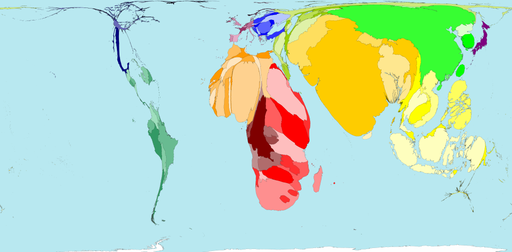
David Hettle, DTMH 2015
It is hard to believe that the move to lecture theatre and labs from the hospital ward happened less than two months ago.
The vast expanse of information we’ve been taught feels like we must have been here for months, even years, rather than a matter of weeks. Having spent three weeks covering three huge diseases: TB, HIV and malaria; we’ve moved through a world of flies and worms, before leaping into the topic of maternal and child health. All this has been punctuated with various activities: the DTM&H Sports Day (alternatively the ‘Have a picnic and lie on the grass day’), film evenings, various sporting rivalries surfacing during the Rugby World Cup, seeing the orchestra play Holst’s ‘The Planets’ and doctors almost instinctively jumping at the chance to make the most of having evenings and weekends free!
It’s hard to imagine how we could be learning more, which is wonderful, yet mildly terrifying with a marked Diagnostic Parasitology lab session later this week and practice exam coming soon.
Throughout these few weeks, there have, at times, been facts, comments and quotes which have caused me to stop and wonder, usually for long enough that I suddenly snap back to reality a few minutes later to realise I’ve lost where we are in the lecture!

One such moment during TB week was the revelation that irrespective of the quality of a TB control programme in a low-middle income country (formerly ‘the developing world’) it has not been shown to lead to a reduction in TB incidence (the number of new cases of TB per year). The only factor associated with a falling TB rate is the GDP (gross domestic product) of that country. That is, regardless of how much effort, planning and medical work has gone into that programme it is only how rich a country is, that ultimately makes a difference.
“A man with a gun is almost as much a vector for trypanosomiasis (sleeping sickness) as the tsetse fly”. Other than getting over the fact that the fly in question is a ‘tsetse’ rather than ‘sexy’ fly as it often sounded, that war has as much impact on a disease as the fly which carries it struck me as incredible. Furthermore, the one drug which prevents death in people suffering from trypanosomiasis is actually derived from arsenic and can, itself, cause fatality in up to 1 in 10 people.
Another story from another social event in which a large group of us descended upon the Unity Theatre, to see a play called Lampedusa. It followed the story of two individuals who are at the end of their tether with the unfairness of life. One of them, Stefano, is a fisherman on the tiny island of Lampedusa (an island in the Mediterranean, now the first landing point for people migrating from Africa), who instead of fishing, now has to collect bodies from the waters surrounding his island. He spends the play in anguish and distress at the situation he finds himself in, yet in the end he finds consolation, then joy in the friendship of a Malian man, whose wife Stefano saves from the sea as we near the end of the play.
Through these weeks there have been moments, like these, when it becomes clearer that it is often things outside of ‘medicine’ that truly make a difference. The DTM&H is giving me a healthily revised perspective on the way in which people are, systems do and don’t function and how I can to look forward to contribute and work in low-middle income settings.
The adventure continues.
David Hettle DTMH 2015